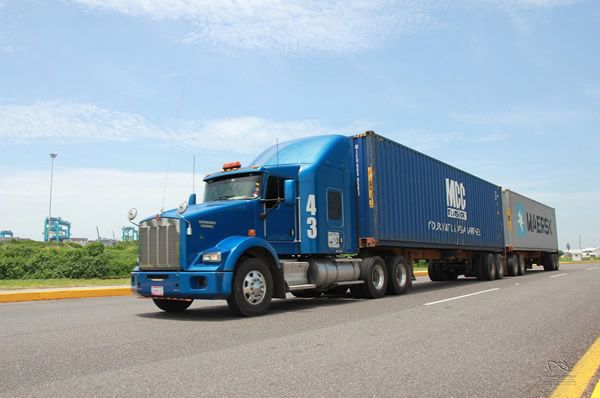Road transportation is the most widely used mode for exporting and importing to and from Mexico, with the characteristics described below, according to the World Trade Organization (WTO).
Prior to the pandemic, in 2019, 62%, in value terms, of Mexico’s exported cargo and 48% of the value of imports were transported by road.
However, the competitiveness of road transport has been undermined by the state of the network and road safety, the price of fuel and poor connectivity with other types of transport.
Logistics in Mexico
This is compounded by the condition of freight vehicles, which has an impact on costs and travel time.
Land transportation of cargo, passengers, and tourism within Mexican territory is reserved for Mexicans. Foreigners are not allowed to provide these services. They also cannot participate, directly or indirectly, as partners or shareholders in Mexican companies that offer these services.
Foreigners established in Mexico may provide courier and parcel services; however, this is currently not the case.
To provide these services, both nationals and foreigners require a permit from the Secretaría de Infraestructura, Comunicaciones y Transporte (SICT).
International transportation may be provided by companies established in Mexico, even if they are foreign-owned (majority).
Also, international transportation is governed by international agreements signed by Mexico; Mexico has agreements containing provisions on road transportation with Canada, United States and Guatemala.
Road transportation
Cabotage is not permitted for land transportation.
In international freight, the rail system is used to import agricultural products, mostly corn, and containerized cargo. It is also used to export automobiles and beer.
According to the Sector Program for Communications and Transportation 2020-2024, Mexico aims to promote the use of trains. This is to reduce both economic and environmental costs.
Foreign participation in rail services and infrastructure (when general railways are involved) is still limited to 49%, but foreigners can increase their participation, even up to 100%, if they obtain approval from the National Foreign Investment Commission (CNIE); according to the authorities, the CNIE has authorized FDI to exceed 49% only in construction projects.
Rail freight rates are not regulated. However, in 2020, Cofece determined that there was a lack of effective competition in the transportation of chemicals on 20 routes in the state of Veracruz.
As such in 2020 the Rail Transport Regulatory Agency (ARTF) began regulating the tariffs of the operators providing the service on the designated routes; this measure is still in effect.

